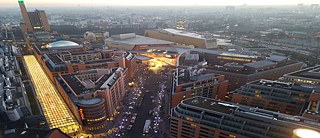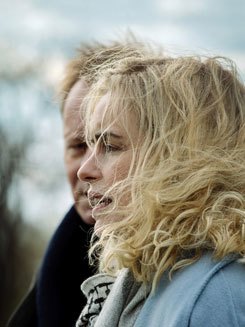Berlinale-Blogger 2017
Observations of a film festival traveller

Films, and the festivals that bring them together, have long performed a crucial task: bridging the gap that separates audiences from other parts of the world. The proliferation of culture - and nation-specific showcases of cinema in Australia - only highlights that fact. While travelling to Germany mightn't always be realistic or practical for many, soaking in the movies made in and about Deutschland is as easy as a trip to one of the festivals in Australia.
It's not quite the same as actually being there. But as 24 frames per second beam down from the cinema screen, its close enough — as well as a window into parts of the country and its stories that even someone physically on the ground might miss. It's a chance to explore while watching and without venturing far, and it boasts more parallels with the experience of making the trip and attending the Berlinale than might initially be apparent.
In a program overflowing with more than 400 films, viewing every title at the festival is impossible. And, while spending the bulk of every day and night at the Berlinale Palast, Cinemaxx or CineStar seeing the length and breadth of both Berlin and Germany is also implausible. That's why, when one of the features screening mentions either the city or the country, an eager, interested buzz infects the cinema. Soon, spotting references to both becomes second nature. Regardless of where the film in the program hails from, ties to Germany fly through thick and fast.

Interestingly, this process also works in reverse for film festival travellers in strange lands. Eyes brighten and ears prick up when a glimpse or a sound of home rears its head — and for an Australian at the Berlinale, there are many. Five features and four shorts screen in the 2017 line-up, including Red Dog: True Blue, Emo the Musical, Casting JonBenet and Monsieur Mayonnaise, as well as a retrospective showing of Dark City. Talent-wise, Geoffrey Rush stars in Final Portrait and Hugh Jackman in Logan, albeit without their native accents.
They're the expected connections. Others, of the surprising kind, also spring. Hearing Emily Browning’s Aussie character in Golden Exits talk of home, for example, or discovering that Spoor’s Patricia Volny was raised in Australia. And then there's Ana, Mon Amour’s addition to the fold, courtesy of a song that’s barely heard but still manages to instantly connect its Romanian-set Berlinale competition contender with the land down under. It's faint, but when the distinctive sounds of Flume’s “Never Be Like You” start playing, the festival ensures that not even a country located on the other side of the planet feels particularly far away.